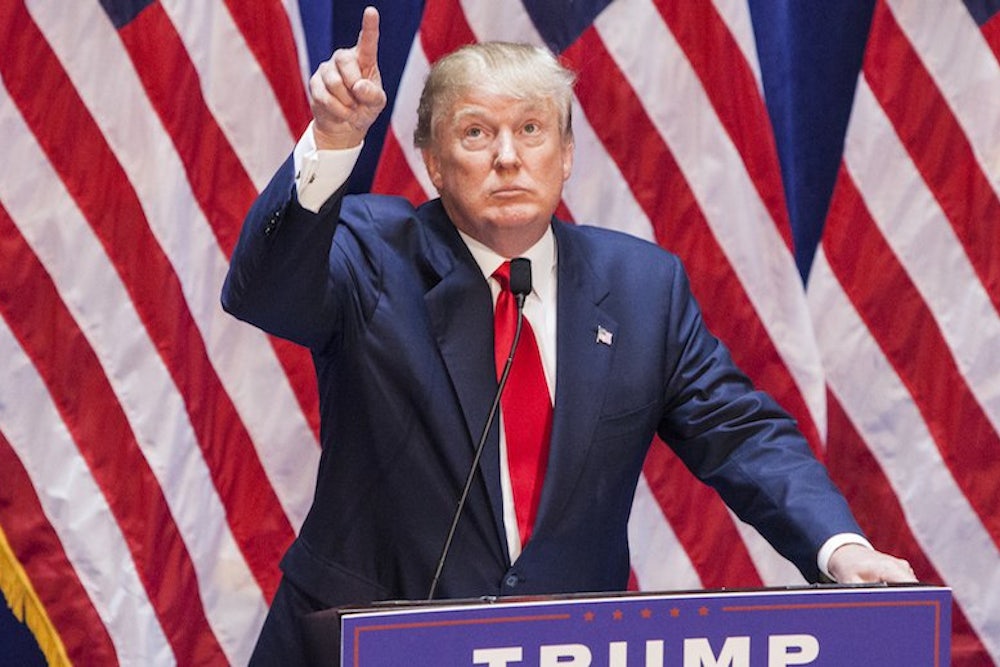At today’s Values Voters Summit, Donald Trump made it clear to attendees what he really values: salesmanship.
Trump digresses onto how much he hates when stores say "Happy Holidays," promises that they will say "Merry Christmas" under his presidency.
—
daveweigel
Of course, saying “Merry Christmas” instead of “Happy Holidays” isn’t a habit Trump makes his hotel employees adhere to. Advertising materials from Trump’s hotels feature the phrase “Happy Holidays,” and the Donald himself has used the greeting on Twitter:
Plan a perfect weekend for the holidays in NYC's hottest neighborhood using @TrumpSoHo's 20% offer http://tinyurl.com/lr349kz
—
realdonaldtrump
The revanchist movement against “Happy Holidays” seems to presume the term is meant to extend to whatever religious holiday a person might be celebrating, though it’s possible to view it as encompassing, say, Christmas and the New Year. Its flexibility is what makes it such an inviting choice for well-wishers, and such a bother to people like Trump.
A few points of clarification: The president is not capable of unilaterally forcing employees to greet customers in a particular way, though government-enforced greetings of the past do carry creepy totalitarian overtones. Moreover, saying “Merry Christmas”—and the practice of shopping in massive department stores for huge quantities of goods to distribute to friends and family—are by no means integral to the Christmas holiday. Christians all over the world celebrate the birth of Jesus differently, and in many cases a bit more modestly than Americans do. Christians who celebrate the entire advent season tend not to celebrate Christmas itself until they have celebrated all of the other events of the season, meaning that even among Christians within the United States, the unfolding of the holidays varies between denominations and churches.
Which is irrelevant to the fixation of people like Trump, who prefer “Merry Christmas” to “Happy Holidays” not for specifically religious reasons, but because “Merry Christmas” informs people that they are on English-speaking, Christianist turf, where the people in charge all celebrate Christmas in a decidedly American way. People who aren’t celebrating Christmas or who do so in an unfamiliar way are supposed to feel unwelcome when they hear it.
Twice during his visit to the United States, Pope Francis has asked believers to pray for him and for non-believers to wish him well. Francis’s outreach to non-believers invited them to participate in his visit, and to consider his message with an open mind. Whether or not his efforts will be successful at revitalizing American spirituality, his gentle, respectful offer to non-believers has a much more profoundly Christian tenor than Trump’s bit of red meat, which seems less about evangelism than about assuring a certain stripe of American Christians that they’re still the ones in control.
